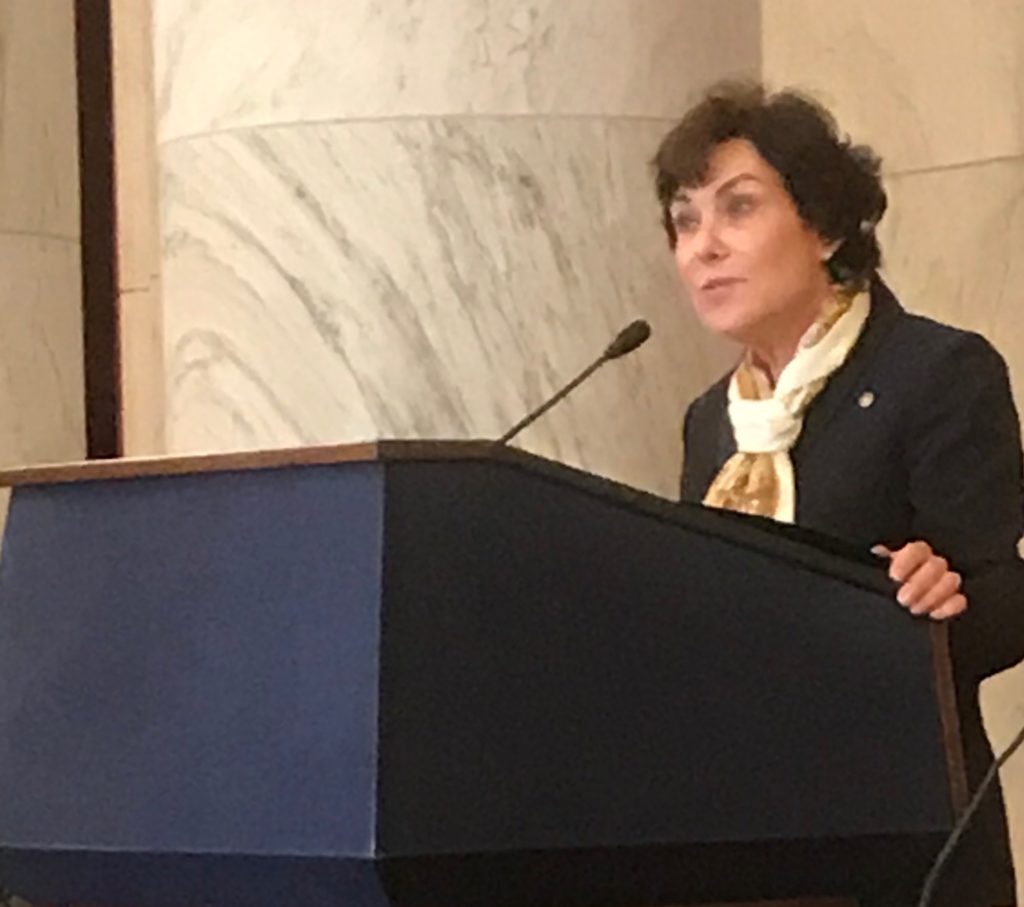Stakeholders in the hospice space must work with policymakers to remove barriers that complicate patients’ access to care, according to Sen. Jackie Rosen (D-Nev.) — including the requirement for a six-month terminal prognosis.
Rosen made the comments at the National Hospice & Palliative Care Organization Interdisciplinary Conference in Orlando, Fla.
“I know all too well that many individuals fall in the gap between disease treatment and end-of-life needs … People are living better, longer with chronic disease and even terminal disease. With my mother, it was a year. And so who knows what can happen in a year?” Rosen said. “And that choice between saying, well, I have to give up [curative treatment], that can be frightening to families. I think we have to remove that obstacle, and we have to understand that you can do curative care and palliative care, and they can live together in that space.”
Rosen prior to her election to Congress was a caregiver to aging members of her family, including her mother. Earlier this year, she spearheaded the establishment of the new Comprehensive Care Caucus, a bipartisan group of senators working to expand palliative care in the United States. Other founding members of the Comprehensive Care Caucus include Sens. Tammy Baldwin (D-Wis.), Deb Fischer (R-Neb.) and John Barrasso (R-Wy.).
The mission of the caucus is to raise awareness of palliative care, promote utilization, improve care coordination, support caregivers and expand access to palliative care services. Among other initiatives, the caucus will likely focus on passage of legislation such as the Provider Training in Palliative Care Act, the Palliative Care and Hospice Education and Training Act (PCHETA) and the Rural Access to Hospice Act.
These pieces of legislation, respectively, would make palliative care clinicians eligible to participate in the National Health Service Corps, provide funds for clinician education and public awareness, and allow physicians in Rural Health Centers and Federal Qualified Health Centers to serve as attending physicians for patients in hospice.
“This bipartisan legislation is going to strengthen the skills of the workforce, not just in my home state of Nevada, but across the country,” Rosen said of the Provider Training in Palliative Care Act. “And it’s going to better be able to help us meet the needs of patients from their families, especially in those rural and underserved communities all across America … The fact is none of us are getting any younger, and so we must also think creatively about how to help our population age with dignity.”



